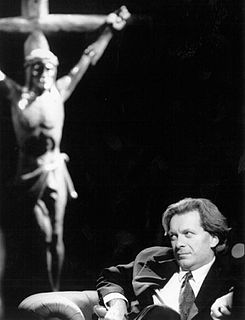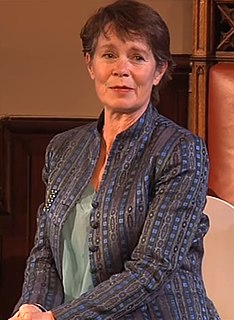A Quote by Grace Paley
My mother went to demonstrations. I remember her going to a big demonstration for Earl Brower and she came home crying and said the Communists were very mean and booed their people. I remember feeling sad at her feeling sad.
Related Quotes
She liked being reminded of butterflies. She remembered being six or seven and crying over the fates of the butterflies in her yard after learning that they lived for only a few days. Her mother had comforted her and told her not to be sad for the butterflies, that just because their lives were short didn't mean they were tragic. Watching them flying in the warm sun among the daisies in their garden, her mother had said to her, see, they have a beautiful life. Alice liked remembering that.
Just like Marilyn Monroe is a lot of girls' idol, that's how I feel about Dorothy Dandridge. And she any Marilyn were very close friends. She went through a lot, and people told her that she couldn't do certain things, but she didn't let that bother her. She said in her mind that she was going to do them and that nothing was impossible, and she did it. It was so sad... She died from drugs, and drinking as well.
Her hair was a damp mass of curls at the back of her neck, and Will looked away from her before he could remember what it felt like to put his hands through that hair and feel the strands wind about his fingers. It was easier at the Institute, with Jem and the others to distract him, to remember that Tessa was not his to recall that way. Here, feeling as if he were facing the world with her by his side--feeling that she was here for him instead of, quite sensibly, for the health of her own fiance--it was nearly impossible.
And then he was kissing her, and she was struck by his nearness, his solidity, his smell. It was of the garden and the earth and the sun. When Cassandra opened her eyes, she realized she was crying. She wasn't sad, though, these were the tears of being found, of having come home after a long time away.
There was another reason [she] took her books whenever they went away. They were her home when she was somewhere strange. They were familiar voices, friends that never quarreled with her, clever, powerful friends -- daring and knowledgeable, tried and tested adventurers who had traveled far and wide. Her books cheered her up when she was sad and kept her from being bored.
My mother told me I said to her, at age three, 'I'm going to go to Italy and get my father in a tractor.' 'You've never seen quite so fierce a little boy as you were,' she told me. She tried to explain that I couldn't get my father in a tractor. Apparently I looked at her and narrowed my eyes and said, 'In that case, I'm going in a double-decker bus,' and stomped off. Which is kind of funny, but it's very sad, as well.
She was wearing a pair of my pajamas with the sleeves rolled up. When she laughed I wanted her again. A minute later she asked me if I loved her. I told her it didn't mean anything but that I didn't think so. She looked sad. But as we were fixing lunch, and for no apparent reason, she laughed in such a way that I kissed her.
That came from my mother. She was the biggest influence on my life. I remember once refusing to get on a bus with her because she was wearing a mink, and I thought we should be taking a taxi. She just said, 'Who cares what people think?' and I remember sitting on that bus, being utterly embarrassed, but knowing somehow that she was totally correct.
In the years that I have been an actress, I have told the story of my life many times, and I get tired of it, so sometimes I change it a little. That is, I change the mood. If I am feeling sad, then I remember to tell only the sad things. If I am feeling happy, then I can remember only to tell all the good things.
The idea of the book ["The Japanese Lover"] came in a conversation that I had with a friend walking in the streets of New York. We were talking about our mothers, and I was telling her how old my mother was, and she was telling me about her mother. Her mother was Jewish, and she said that she was in a retirement home and that she had had a friend for 40 years that was a Japanese gardener. This person had been very important in my friend's upbringing.
I remember when my mother, Shyamala Harris, bought our first home. I was thirteen. She was so proud, and my sister and I were so excited. Millions of Americans know that feeling of walking through the front door of their own home for the first time - the feeling of reaching for opportunity and finding it.
If I look back, my mother was always out. I can remember the perfume and her scarlet chiffon dress and crystal beads, going to a party. She used to play her violin at restaurants later on in life and at old people's homes. She loved the races, which she used to take me to as a child: our carpets were bought with her winnings. Loved her chickens.






































